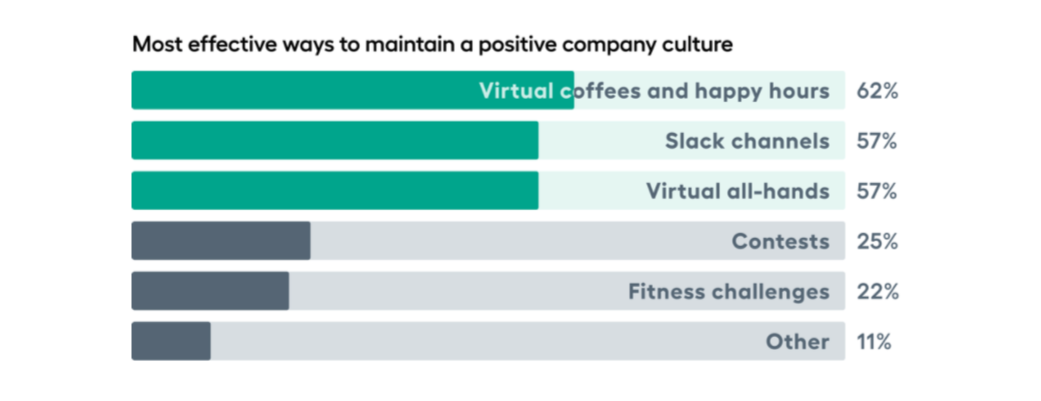Through our customers and Lattice’s own firsthand experience, we’ve seen how the ongoing health and financial crisis has tested cultures and forced teams to adapt. Simply put, HR’s response to this situation has been nothing short of inspiring.
We surveyed over 1,700 HR professionals and leaders from around the world and across all major industries, asking them to share their challenges, surprises, and solutions. We’re thrilled to share the results in our new report, How People Teams Rose to Meet a Global Crisis. The insights shared give us a snapshot of this unique moment — and perhaps even a roadmap for handling what comes next.
To read the full report, click here. Below are just some of the survey’s key takeaways.
1. Morale emerges as HR’s top challenge.
The ongoing crisis has presented HR teams with a slew of logistical and technological hurdles. But for most companies, the human element became their greatest concern.
Nearly 70 percent of survey respondents listed employee morale as their top challenge, eclipsing onboarding, hiring freezes, and even furloughs. It’s easy to see why — between adapting to a new way of working, sheltering in place, and worrying about job security, employees have a lot on their minds.

HR teams are experimenting with creative ways to keep spirits high. In addition to offering perks like remote office and grocery stipends, HR teams are using technology to bring teams together. Almost two-thirds of companies (62%) have been holding virtual coffee breaks and happy hours with their staff, while 57% are utilizing Slack channels for light-hearted conversations and contests.
2. HR teams leaned on managers.
HR teams can’t shoulder employee engagement and wellbeing on their own. Managers are invaluable partners in times of crisis — and according to our survey data, they were generally prepared. On a scale of one to five, the majority (60%) of respondents rated managers’ ability to adapt to remote leadership four or higher.
That preparedness should come as welcome news since HR teams are still heavily dependent on managers to track employee sentiment. Over 80% of survey respondents said manager conversations were their primary means of monitoring engagement and morale during the crisis. Keeping communication lines open, be it through Slack check-ins or weekly one-on-one meetings, was critical to keeping teams motivated.
Natalie McGrath, a veteran HR leader and co-founder of The People Design House, weighed in on the findings. “Things like one-on-ones, team meetings, and remote collaboration [have] become even more important. People leaders who prioritize supporting and up-leveling managers will find this focus pays off in the long run, regardless of whether your company stays primarily remote or not,” she said.
3. Attitudes toward remote work have evolved.
Remote work has been the “next big thing” in HR for a long time. But while a growing number of companies were warming to it before the crisis, our findings suggest that the trend just got put on the fast track.
Before the crisis, the majority of survey respondents had just 10% or fewer remote employees. Almost overnight, most companies (70%) had completely remote workforces. But while that shift might not be surprising on its own, HR teams’ long term plans certainly were: 60% said they’d make remote work a standard option after the crisis. After a few consecutive months of working from home, some employees might ask to make the switch permanent.
McGrath believes this experience could go a long way in helping remote work shed its reputation as just a “perk” or exception to the rule. “What would’ve happened over three to five years has now been done in a matter of months. We might see more people taking the plunge, now that they’ve had a taste of what this can look like,” McGrath said.
—
Did teams update their OKRs or reschedule performance reviews in response to the crisis? Did most companies even have a crisis plan in place beforehand? Find out what else we learned by downloading the full report.








